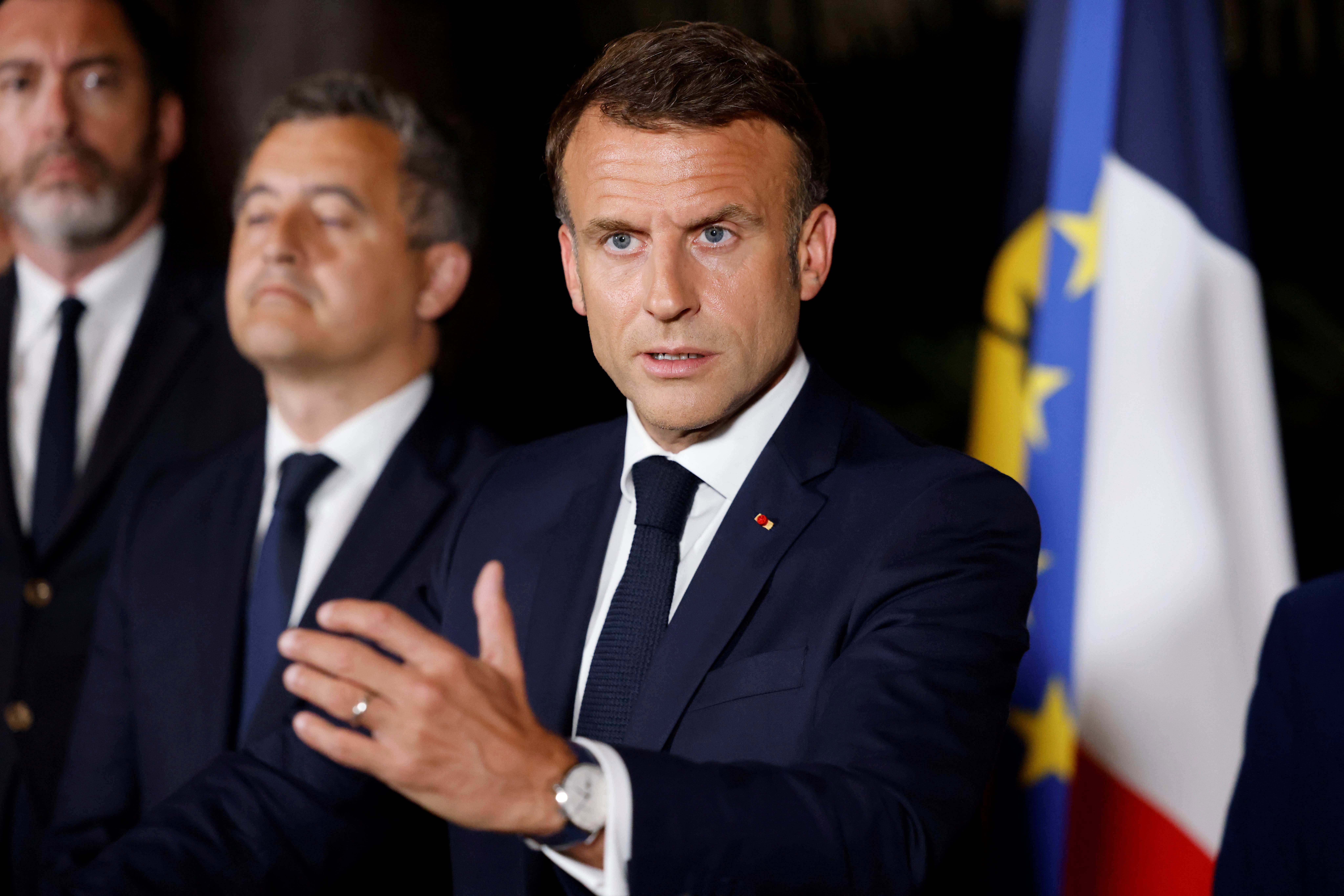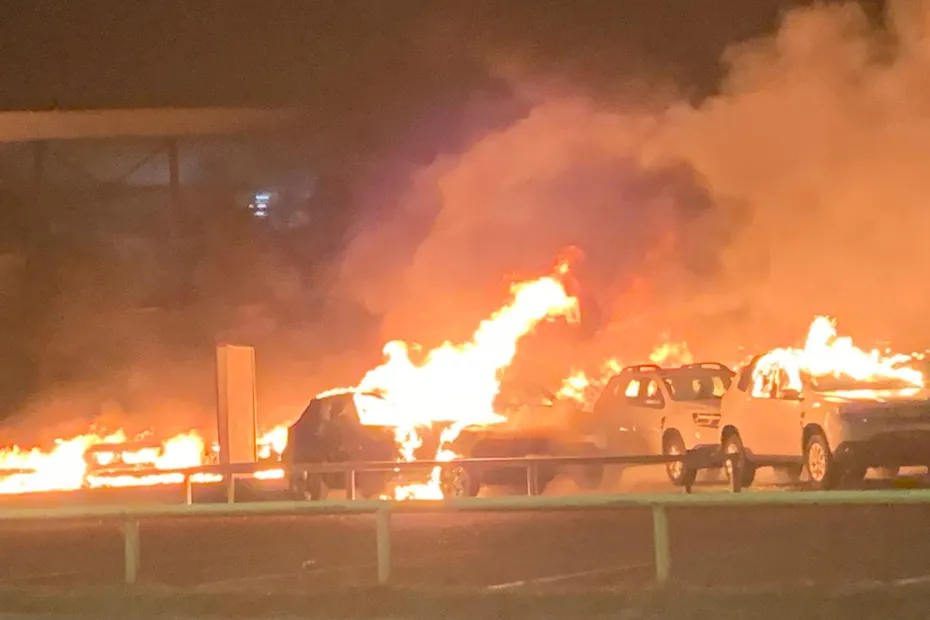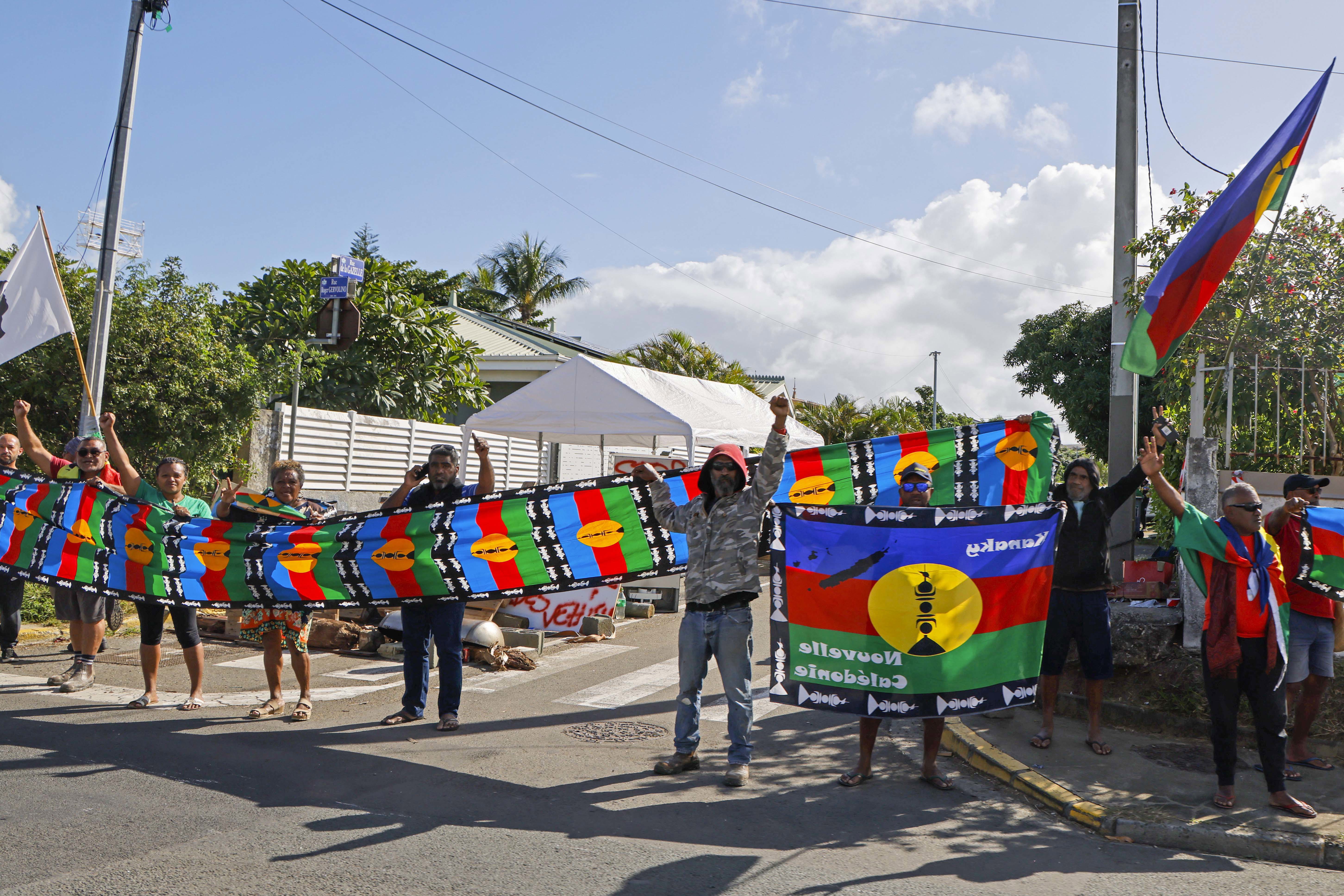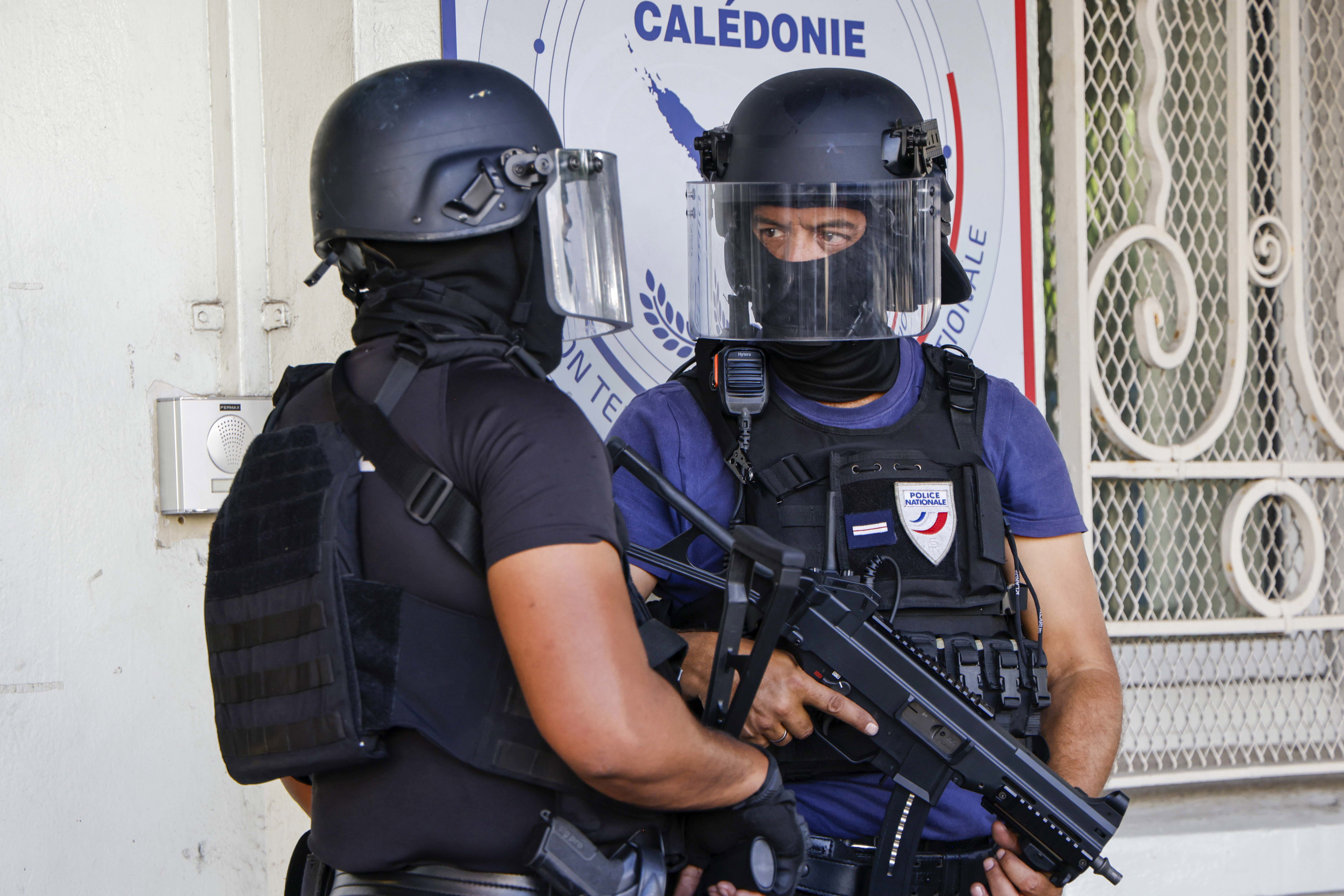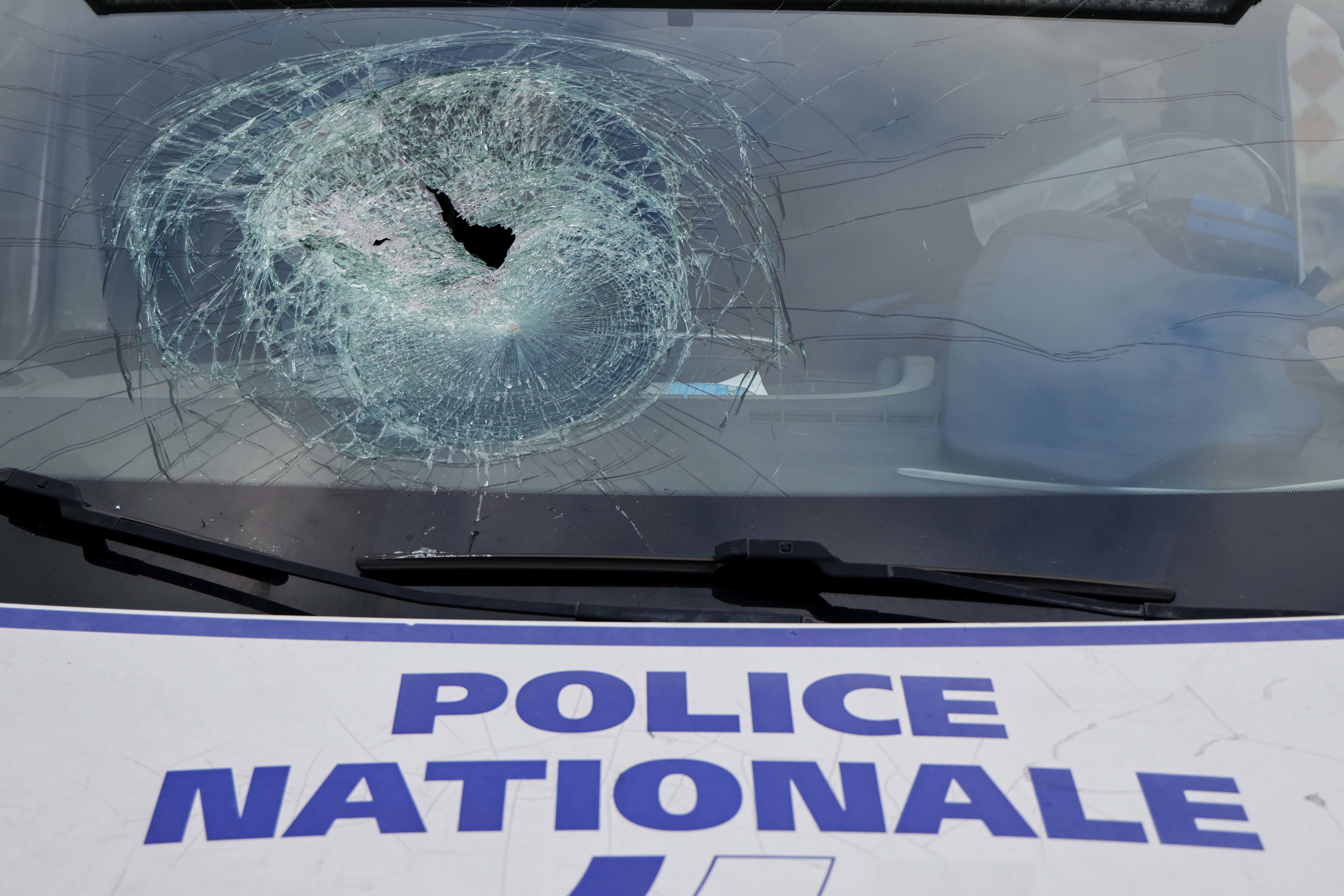French President Emmanuel Macron has declared he won’t force through a contested voting reform that has sparked deadly unrest on New Caledonia
On a visit to the riot-hit French Pacific territory on Thursday, he said he wanted to leave time for local leaders to come up with an alternate agreement for the archipelago's future.
Speaking after a day of meetings with leaders on both sides of New Caledonia’s bitter divide between Indigenous Kanaks who want independence and pro-Paris leaders who do not, Macron laid out a roadmap that he said could lead to another referendum on the archipelago.
READ MORE: Uncertainty looms as Australians remain stranded in Noumea
Three earlier referendums between 2018 and 2021 produced “no” votes against independence.
He said another referendum could be on a new political deal for the archipelago that he hopes local leaders will agree on in coming weeks and months after protesters’ barricades are dismantled, allowing for a state of emergency to be lifted and for peace to return.
“I have pledged that this reform won’t be pushed through with force today in the current context and that we are giving ourselves a few weeks to allow for calm, the resumption of dialogue, with a view to a global agreement,” he said.
The voting reform has already been approved by both French houses of parliament in Paris.
The next step was to have been a special Congress of both houses meeting in Versailles to pass changes to France’s Constitution needed to implement it.
That had been expected by the end of June.
READ MORE: Mercy flights bring dozens home from 'pretty hectic' New Caledonia
But Macron’s comments in the New Caledonian capital, Nouméa, suggested he’s now willing to change tack and buy more time for an alternate deal, perhaps more palatable to pro-independence leaders who fear the electoral change will marginalise Kanak voters.
Macron said he would take stock in one month “at the most".
His announcements came at the end of a visit aimed at de-escalating the severest violence since the 1980s in the archipelago of 270,000 people, with decades of tensions over the issue of independence between Kanaks and the descendants of colonists and other settlers.
Earlier in the day, Macron pushed for the removal of protesters' barricades and said police sent in to help battle unrest “will stay as long as necessary", even as security services back in France focus in coming weeks on safeguarding the Paris Olympics.
By cancelling his previously announced schedule and instead flying across the globe from Paris to New Caledonia, Macron brought the weight of his office to bear on the crisis, which has left six dead and a trail of destruction in the archipelago.
Pro-independence Kanak leaders, who a week earlier declined Macron's offer of talks by video, joined a meeting the French leader hosted with rival pro-Paris leaders who want New Caledonia, which became French in 1853 under Emperor Napoleon III, to remain part of France.
Macron first called for a minute of silence for the six people killed in shootings during the violence, including two gendarmes.
He then urged local leaders to use their clout to help restore order.
He said a state of emergency imposed by Paris for at least 12 days on May 15 to boost police powers could only be lifted if local leaders call for a clearing away of barricades that demonstrators and people trying to protect their neighbourhoods have erected in Nouméa and beyond.
“Everyone has a responsibility to really call for the lifting of the barricades, the cessation of all forms of attack, not simply for calm," he said.
Barricades made up of charred vehicles and other debris have turned some parts of Nouméa into no-go zones and made travelling around perilous, including for the sick requiring medical treatment and for families fretting about where to find food and water after shops were pillaged and torched.
French authorities say more than 280 people have been arrested since violence first flared on May 13 as French lawmakers in Paris debated the contested changes to New Caledonia voter lists.
The unrest continued to simmer as Macron jetted in, despite a 6pm to 6am curfew and more than 1000 reinforcements for the archipelago's police and gendarmes, now 3000 strong.
“I will be very clear here. These forces will remain as long as necessary. Even during the Olympic Games and Paralympics," which open in Paris on July 26, Macron said.
It was late on Tuesday in Paris when he left on the 16,000-kilometre trip but, because of the distance and time difference, it was Thursday morning in New Caledonia when he arrived with his interior and defence ministers.
At Nouméa's La Tontouta International Airport, which remains closed to commercial flights, Macron said on arrival that he wanted "to be alongside the people and see a return to peace, calm and security as soon as possible".
Later, at Nouméa's central police station, Macron thanked officers for facing what he described as “an absolutely unprecedented insurrection movement".
“No one saw it coming with this level of organisation and violence,” he said.
“You did your duty. And I thank you.”
Fires, looting and other violence targeting hundreds of businesses, homes, stores, public buildings and other sites in and around Nouméa have caused destruction estimated in the hundreds of millions of dollars.
This week, military flights evacuated stranded tourists.
Macron flew to the archipelago under pressure from politicians in France and pro-independence supporters to delay or scrap the overhaul of the voting system.
It would enlarge voter numbers in provincial elections for New Caledonia's legislature and government, adding about 25,000 voters, including people who have been residents of the archipelago for at least 10 years and others born there.
Opponents fear the measure will benefit pro-France politicians in New Caledonia and further marginalise the Kanaks, who once suffered from strict segregation policies and widespread discrimination.
Supporters say the proposed overhaul is democratically important for people with roots in New Caledonia who can't currently vote for local representatives.
Macron in the past has facilitated dialogue between the divided pro- and anti-independence camps.
France's efforts included three referendums from 2018 to 2021 which asked voters if they wanted independence.
They voted "no" each time, but the last referendum in 2021 was boycotted by pro-independence forces.


